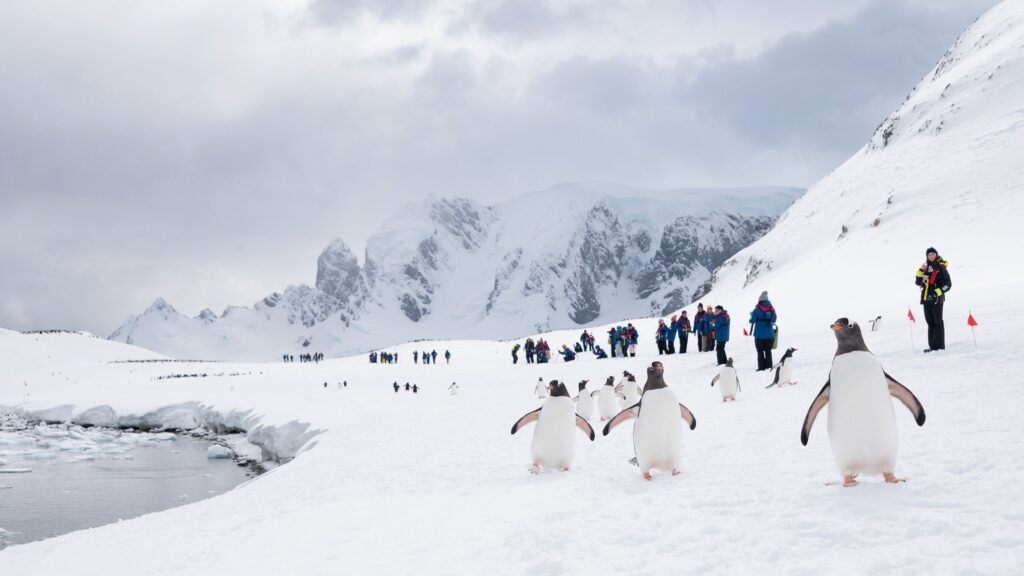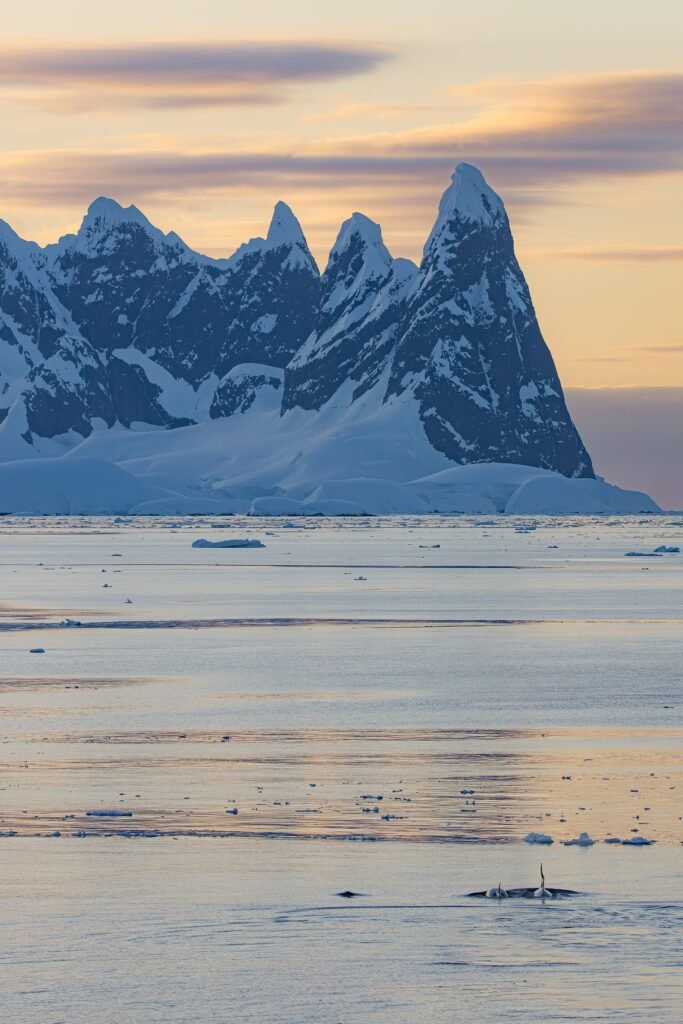
Hello members of the Antarctica Travel Group! The 2024-25 Antarctic season went well and is close to its end. Some ATG members are even sailing and experiencing the wonders of Antarctica right now! We can’t wait to see you following your dreams and having experiences of a lifetime in our favorite travel destination!
We are writing to tell you about the avian influenza – commonly known as bird flu. Some of you may have seen headlines about bird flu over the last year or so. It’s a highly infectious virus that has spread through both domestic and wild bird populations on almost every continent over the last 24 months. Once the virus enters a population of birds (the virus has also been seen in many species of mammals, including humans), it spreads quickly and can have a high mortality rate leading to devastating effects in some cases. The worry is that recent occurrences of bird flu in South America and now on a sub-Antarctic island could be spread by wildlife or humans to the Antarctic Peninsula.
The Antarctic expedition industry has been on very high alert for bird flu for over a year now. We’ve created stricter policies around something called “biosecurity” to ensure that we as visitors to this amazing place do not inadvertently spread disease among the species of Antarctica. Visitors last year will be familiar with policies that limited contact with the ground – or more simply put: no kneeling, laying down, or putting bags or any other equipment down while onshore in Antarctica. These policies will continue this year as a definitive measure to limit the chance of spreading pathogens from one landing site to the next.
Antarctic operators have also enhanced the biosecurity process which sees all guests and expedition staff disinfect their equipment before and after each landing in Antarctica. These process help us limit the spread of any viruses or other unwanted invasives from one site to the next. Part of our responsibility of traveling to a pristine wilderness like Antarctica is placing the care of the environment and the safety of those who visit. The actions we take under these circumstances as individual travelers and as an industry are very important and will go a long way towards protecting vulnerable Antarctic species.

There have been reports of bird flu reaching the Antarctic continent and South Georgia. Select sites have been closed to visitation in these situations. You will undoubtedly hear more on this subject as you are onboard, and your expedition team will be equipped with all the resources needed to update you on the most current situation with regards to bird flu.
The expedition tourism industry, represented by an organization called IAATO, is recommending closures be done on a case-by-case basis, leaving plenty of room for expedition activities around the beautiful Antarctic Peninsula. This is of course an unfortunate circumstance that we will keep you as well-informed on as possible. However, we are here to emphasize that the trips to this amazing place are running on schedule and that we expect amazing and wonderful sights and experiences from this season.
We know that it is important that you are all as well informed as possible about the current situation in Antarctica so you can prepare for your upcoming expeditions. You can learn more about what bird flu is at these links: World Organization for Animal Health – and the industry-wide protocol for travelers to Antarctica this season: IAATO – Response to Avian Influenza.
ATG is looking forward to thrilling and eye-opening expeditions to Antarctica with you this season. Together we can all help to protect wildlife in Antarctica.
To recap:
- There is a high risk of bird flu this season in Antarctica
- Procedures to protect both travelers and the Antarctic wildlife have been put into place:
- No sitting, kneeling, or placing any equipment on the ground while onshore
- Enhanced biosecurity procedures before and after each landing in Antarctica
- Listen to directions from your guides at all times
- Operations are a go! Let’s have a safe and fun trip!
